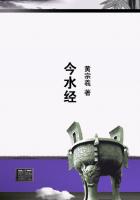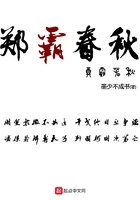He was upon the eve of failure. He had already hypothecated for his own debts the loan of the city placed in his hands for sale--he had unlawfully obtained five hundred thousand dollars in cash as loans; and it is reasonable to suppose that he could obtain nothing more from the city treasury by any ordinary means. Then it is that he goes there, and, by means of a falsehood implied if not actual, obtains sixty thousand dollars more. The jury has found the intent with which this was done."
It was in these words that Cowperwood's appeal for a new trial was denied by the majority.
For himself and Judge Rafalsky, Judge Marvin, dissenting, wrote:
"It is plain from the evidence in the case that Mr. Cowperwood did not receive the check without authority as agent to do so, and it has not been clearly demonstrated that within his capacity as agent he did not perform or intend to perform the full measure of the obligation which the receipt of this check implied. It was shown in the trial that as a matter of policy it was understood that purchases for the sinking-fund should not be known or understood in the market or by the public in that light, and that Mr. Cowperwood as agent was to have an absolutely free hand in the disposal of his assets and liabilities so long as the ultimate result was satisfactory.
There was no particular time when the loan was to be bought, nor was there any particular amount mentioned at any time to be purchased. Unless the defendant intended at the time he received the check fraudulently to appropriate it he could not be convicted even on the first count. The verdict of the jury does not establish this fact; the evidence does not show conclusively that it could be established; and the same jury, upon three other counts, found the defendant guilty without the semblance of shadow of evidence. How can we say that their conclusions upon the first count are unerring when they so palpably erred on the other counts? It is the opinion of the minority that the verdict of the jury in charging larceny on the first count is not valid, and that that verdict should be set aside and a new trial granted."
Judge Rafalsky, a meditative and yet practical man of Jewish extraction but peculiarly American appearance, felt called upon to write a third opinion which should especially reflect his own cogitation and be a criticism on the majority as well as a slight variation from and addition to the points on which he agreed with Judge Marvin. It was a knotty question, this, of Cowperwood's guilt, and, aside from the political necessity of convicting him, nowhere was it more clearly shown than in these varying opinions of the superior court. Judge Rafalsky held, for instance, that if a crime had been committed at all, it was not that known as larceny, and he went on to add:
"It is impossible, from the evidence, to come to the conclusion either that Cowperwood did not intend shortly to deliver the loan or that Albert Stires, the chief clerk, or the city treasurer did not intend to part not only with the possession, but also and absolutely with the property in the check and the money represented by it. It was testified by Mr. Stires that Mr. Cowperwood said he had bought certificates of city loan to this amount, and it has not been clearly demonstrated that he had not. His non-placement of the same in the sinking-fund must in all fairness, the letter of the law to the contrary notwithstanding, be looked upon and judged in the light of custom. Was it his custom so to do? In my judgment the doctrine now announced by the majority of the court extends the crime of constructive larceny to such limits that any business man who engages in extensive and perfectly legitimate stock transactions may, before he knows it, by a sudden panic in the market or a fire, as in this instance, become a felon. When a principle is asserted which establishes such a precedent, and may lead to such results, it is, to say the least, startling."
While he was notably comforted by the dissenting opinions of the judges in minority, and while he had been schooling himself to expect the worst in this connection and had been arranging his affairs as well as he could in anticipation of it, Cowperwood was still bitterly disappointed. It would be untrue to say that, strong and self-reliant as he normally was, he did not suffer.













